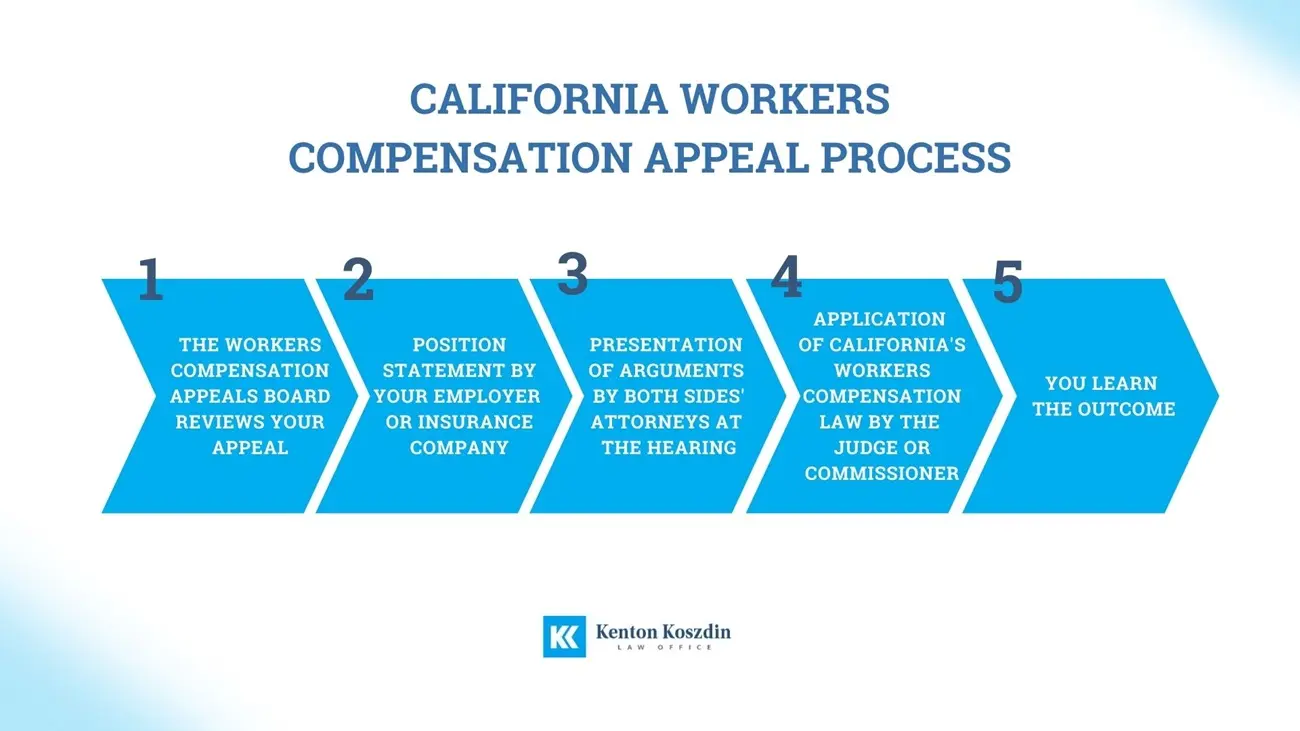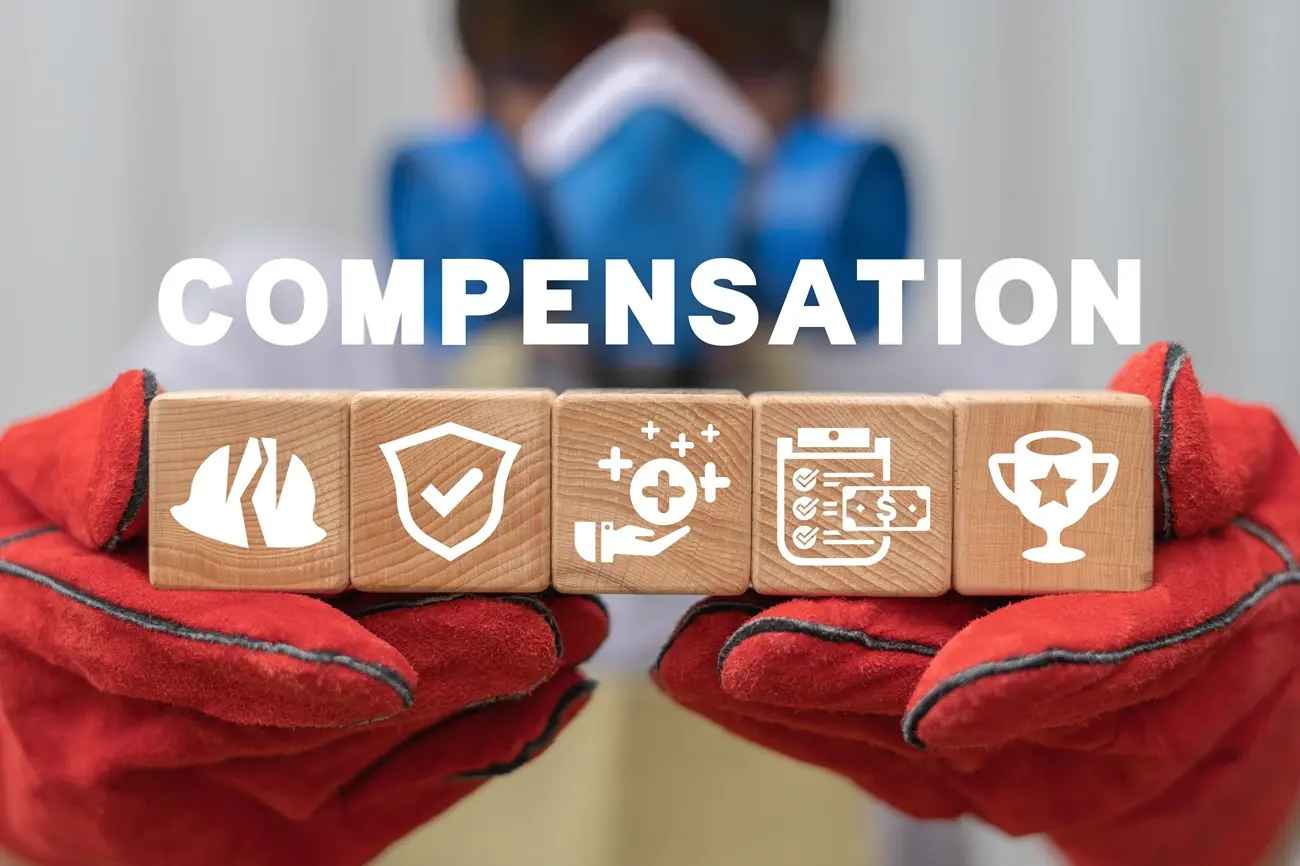What Is the Workers' Compensation Appeals Board?
By Kenton Koszdin Law Office on January 8, 2024 | In Workers Compensation
Navigating the complexities of a workers’ compensation claim can be daunting, especially when your claim is disputed or denied. In such instances, it’s crucial to understand the role of the Workers’ Compensation Appeals Board.
This entity is integral to the workers’ compensation process, stepping in to resolve disputes and ensure that justice is served. It’s an institution that you may not encounter in your daily life, but its importance becomes paramount when you’re seeking rightful compensation for injuries sustained in the workplace in California.
In such scenarios, consulting a skilled workers’ comp lawyer can help you improve your chances of a favorable outcome.
Understanding the Workers’ Compensation Appeals Board
The Workers’ Compensation Appeals Board (WCAB) is a judicial body established by the U.S. government that plays a key role in the workers’ compensation system, as guided by the Labor Code.
Its main concern is matters related to injuries and illnesses sustained in the workplace, ensuring that injured workers receive fair and adequate compensation.
The WCAB is endowed with judicial powers by the government, which enables it to deliver binding decisions on disputes concerning workers’ compensation. These verdicts are derived from a comprehensive examination of the facts presented in each case.
Beyond making rulings, the WCAB also has the power to enforce adherence to workers’ compensation laws. This enforcement authority is vital for safeguarding workers’ rights and making sure they receive the compensation they’re due following workplace injuries or illnesses.
In California, the WCAB consists of seven members who are appointed by the governor. These officials are tasked with managing appeals of workers’ compensation cases and establishing rules of practice and procedure for such cases. This includes the Los Angeles Workers’ Compensation Appeals Board, which operates under the same directive.
Navigating the Workers’ Compensation Appeals Process in California
If your claim has been denied by your employer, its insurance company, or your state’s workers’ compensation board, you have the right to appeal this decision to the WCAB. Here’s a detailed look at how the process works.
1. The Workers’ Compensation Appeals Board Reviews Your Appeal
The initial phase of the appeals process involves the adjudication of your appeal by the WCAB. Upon filing an appeal within the prescribed time frame, the WCAB will scrutinize your appeal and any supporting documentation you provide.
One board member will review the case and make a decision within three days. A second will then review the case and have two days to render their own decision. Finally, a third member will review the case.
If two or more members concur on the resolution, the case will proceed to the Appeals Board staff, who will prepare a written decision. Otherwise, the panel members will meet to discuss the claim, or it will be recirculated to reach a consensus.
It’s imperative to provide precise and comprehensive information to ensure that the WCAB has all the details necessary to evaluate your claim and potentially overturn the denial of your benefits.
2. Position Statement by Your Employer or Insurance Company
After you’ve filed your appeal, your employer, its insurance company, and/or your state’s workers’ compensation board will have the opportunity to state their position. The WCAB will consider any evidence these entities provide when making its decision. This is an important part of the process, as it ensures that all parties involved have a chance to present their case.
3. Presentation of Arguments by Both Sides’ Attorneys at the Hearing
Once all the evidence has been presented, the WCAB will typically schedule a hearing. During this hearing, your lawyer and the attorneys representing the other side will present their arguments to the workers’ compensation judge or commissioner.
4. Application of California’s Workers’ Compensation Law by the Judge or Commissioner
Following the hearing, the judge or commissioner will apply California’s Workers’ Compensation Law to the facts and arguments presented. This application of the law will result in a decision that could either affirm or reverse the denial of your benefits. This decision is based on a careful consideration of the evidence presented and the relevant laws.
5. You Learn the Outcome
The WCAB often takes several weeks to make a decision, so you may not learn the outcome of your appeal immediately. However, you should receive word of their conclusion relatively soon after your hearing. Once you receive the outcome, you can decide what steps, if any, you need to take next.
Types of Decisions in California Workers’ Compensation Cases
The Workers’ Compensation Appeals Board can make several types of decisions, all of which can significantly impact a case’s outcome.
En Banc Decisions
En banc decisions refer to cases that have been reassigned by the board’s chairman following a majority vote of the commissioners. This reassignment typically occurs in cases involving novel issues or when there’s a need to achieve a uniform decision.
Significant Panel Decisions
These are cases identified by the WCAB as those that present new considerations or address recurring issues of significance. Each commissioner reviews these decisions, and all must agree that the decision is worthy of general dissemination.
Cases Pending Appellate Review
These are cases awaiting review by California District courts. The list of these cases, where writs of review have been granted by the district courts of appeal and the state Supreme Court, is updated monthly. For further information regarding the setting of oral arguments or the status of a case, the court clerk where the writ of review is pending can provide additional details.
Why Might the WCAB Reject a Claim?
There’s no guarantee that the Workers’ Compensation Appeals Board will approve the claims it reviews. Claims may be denied by employers, their insurance, or the WCAB itself for various reasons, such as:
- The incident that caused the injury occurred outside the workplace;
- The injury stems from a pre-existing condition;
- Intentional violation of OSHA regulations, barring coverage for resulting injuries;
- Delay in reporting the incident to the employer;
- Lack of medical treatment or consultation with an unapproved medical professional.
This is by no means an exhaustive list — any of the entities listed above may find other reasons for denying a claim.
What Are Petitions for Reconsideration and Removal?
An injured employee has the right to challenge a decision made by a workers’ compensation judge. This can be done if fresh evidence is discovered that may impact the grounds on which the decision was made, if there’s been fraudulent activity by the opposing party, or if the decision could result in significant harm.
This appeals process is known as a Petition for Reconsideration or a Petition for Removal, depending on the specific circumstances. Both types of petitions are reviewed and decided upon by a panel of three workers’ compensation judges.
A Petition for Reconsideration is typically filed following a trial judge’s decision that either grants or denies an injured worker financial compensation or medical treatment.
By contrast, a Petition for Removal is filed when a judge decides matters such as evidence, discovery, hearing time and location, or similar issues. An example of this could be a decision requiring a worker to attend a medical appointment.
Injured workers have 30 days to respond to a decision by filing a Petition for Reconsideration and 20 days to respond with a Petition for Removal. If the decision is received via mail, an additional five days are granted for a response.
How Often Can a Workers’ Compensation Denial Be Appealed?
Just because your claim has been denied doesn’t mean you’ve reached the end of the road. There are multiple opportunities for appeal. The process can involve several stages, each of which sees the claim being presented to an official or panel with an increasing level of judicial authority:
- Conciliation: A conciliator, such as a district hearing officer, reviews the case;
- Judicial Conference: An administrative judge examines the case and all related documents and issues a decision within seven days;
- Appeal hearing: If necessary, this stage allows for a detailed examination of all evidence;
- Department appeals board review: The board reviews previous decisions and hearings to consider overturning the denial;
- State Supreme Court: The final appeal stage involves a review by the state’s Supreme Court.
A qualified Workers’ Compensation attorney can inform you about each stage of the appeals process and help you prepare to meet the procedural requirements for your situation.
Discuss Your Case with a Workers’ Compensation Lawyer
The Workers’ Compensation Appeals Board is an important judicial body appointed to oversee and resolve disputes related to workers’ comp claims in California. The existence of this entity enables workers to file appeals if they’re dissatisfied with the decisions made by workers’ compensation judges.
With extensive experience in workers’ compensation law, the seasoned legal professionals at Kenton Koszdin Law Office can provide valuable assistance with the appeals process. Schedule a consultation today to speak with a knowledgeable attorney and get a better understanding of your options.





